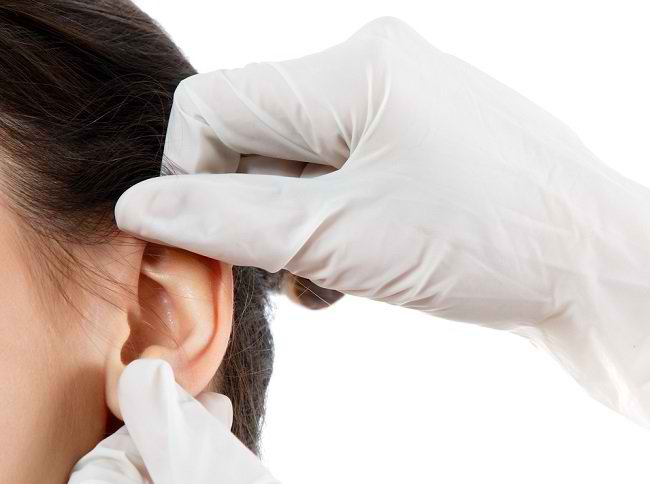The tongue has a function which important for swallow and speak. Then, what happens if the baby has a congenital abnormality of the tongue called a tongue-tie?
Ankyloglossia or tongue-tie is an abnormality in the lining of the bottom of the tongue that connects the tongue to the floor of the mouth. This membrane is called the frenulum of the tongue or tongue string. Tongue-tie is characterized by the frenulum of the tongue which is shorter and thicker, or attached to the tip of the tongue.

This congenital disorder is rare and probably not many parents know about it. The exact cause is not known, but tongue-tie is more common in boys than in girls.
Impact Tongue-tie in Babies
As previously stated, the tongue plays an important role in the process of eating, drinking, and speaking. These three processes will be disrupted if the baby has a tongue-tie. There are at least three problems that can occur as a result of tongue-tie in babies, namely:
1. Babies have difficulty sucking breast milk
At first, the tongue-tie will cause interference when breastfeeding. Instead of sucking milk when feeding, the baby just chews on the mother's nipple. This breastfeeding disorder will affect the amount of milk consumed by the baby, so it will interfere with its growth and development.
2. Mother's nipple is injured
The mother's nipples will also become sore or injured as a result of the baby not being able to suckle properly. When the baby starts eating solid food (MPASI), the tongue-tie is at risk of making the baby choke. In addition, in older children, tongue-tie can make it difficult for children to lick food.
3. Children have difficulty speaking
Speech disorders may only be felt in older children. Children will have difficulty pronouncing words that have the letter r and other consonants, such as t, d, z, s, l, j, ch, th, and dg. When entering school age, children with tongue-tie will have difficulty playing wind instruments.
4. The oral cavity tends to be unclean
In addition to eating and speaking disorders, tongue-tie will also cause disturbed oral hygiene, because the tongue is difficult to clean food debris on the teeth. This condition puts tongue-tie sufferers at risk for cavities and gum inflammation.
Another thing that can also arise from a tongue-tie is the appearance of a gap between the two front teeth and damage to the gums in that area.
How to Overcome Tongue-tie in Babies and Children
There are three kinds of actions that can be taken to overcome tongue tie, namely: frenotomy, frenectomy, and frenuloplasty. Here are the differences between the three:
Frenotomy
The simplest action to overcome a tongue-tie is frenotomy. This procedure is performed without anesthesia or sedation, by slightly tearing the frenulum of the tongue. The procedure is quick, leaving only a small amount of discomfort, with minimal bleeding. After that, the baby can also breastfeed immediately.
Frenectomy
Frenectomy This is done by cutting and removing the entire frenulum. Cutting the frenulum can be done with a scalpel or special tools, such as a electrocauter (burned) and laser beam.
Action frenectomy with electrocauter and the laser beam requires only local anesthesia, unlike frenectomy with a scalpel that requires general anesthesia or with sedation. Operation recovery period frenectomy with electrocauter also faster.
Frenuloplasty
Operation procedure frenuloplasty it is more complex and requires general anaesthesia. Not only cutting the frenulum of the tongue, action frenuloplasty It also involves suturing and repairing the shape of the frenulum.
The doctor will assess which action is most appropriate for your baby. In addition to these three measures, the doctor may also be able to suggest waiting while observing the baby's development. Discuss again with the pediatrician about the benefits and risks of the recommended action.
If your baby has difficulty breastfeeding, try to see a doctor. Maybe he has a tongue tie. The condition should not be underestimated, because it can cause growth disorders, speech disorders, and problems with dental and oral health.
Written by:
drg. Arni Maharani(Dentist)









